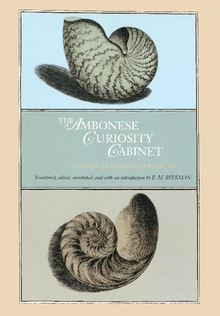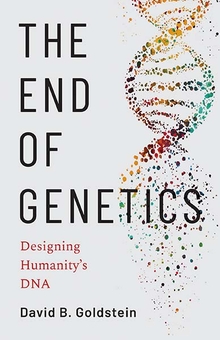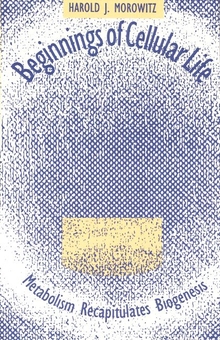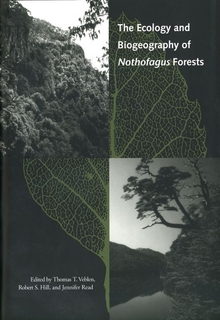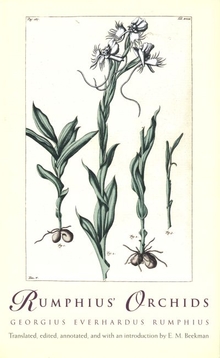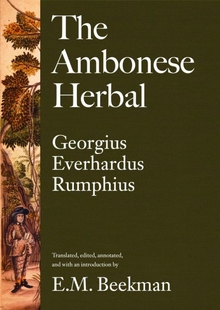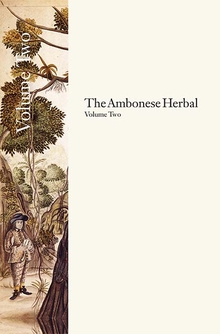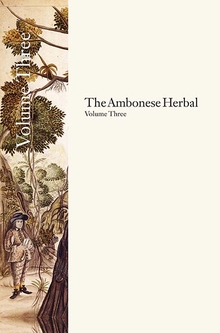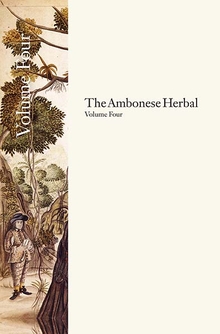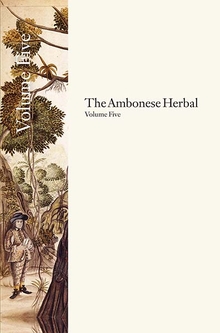The Ambonese Curiosity Cabinet
WARNING
You are viewing an older version of the Yalebooks website. Please visit out new website with more updated information and a better user experience: https://www.yalebooks.com
Georgius Everhardus Rumphius; Translated, annotated, and with an introduction by E. M. Beekman
The descriptions in The Ambonese Curiosity Cabinet cover the gamut of organisms found in the seas surrounding Ambon—crabs, shrimp, sea urchins, mussels—as well as minerals and rare concretions taken from animals and plants. A series of exquisite etchings accompanies the descriptions. The book has been masterfully translated and extensively annotated by E. M. Beekman, whose introduction provides the first biography of Rumphius in English that incorporates new material.
"As one of the most important pre-Linnaean naturalists, and the first one to describe in detail the diverse life forms of the East Indies, the seventeenth-century German-born Rumphius deserves to be better known to biologists and historians than he is. In this scholarly English translation of three of Rumphius’s books from the Dutch, Beekman not only makes available the insights and illustrations of that gifted observer to a wider audience, but has pieced together a vivid picture of the life of this most unusual traveler, who for the last thirty years of his eventful life lived as a blind man at Ambon in the Spice Islands. Beekmans’ many careful and fascinating annotations explore the nooks and crannies of history and linguistics, and place the work of Rumphius in a modern biological context."—Geerat J. Vermeij, Department of Geology, University of California, Davis
“This book not only makes available the insights of a gifted observer to a wider audience, but has pieced together a vivid picture of the life of the most unusual traveler. The many careful and fascinating annotations explore the nooks and crannies of history and linguistics and place the work of Rumphius in a modern biological context.”—Geerat J. Vermeij, Department of Geology, University of California, Davis
“This is the first great natural history of tropical marine life. Remarkable for its detailed observations of living animals, habitats, and fisheries, as well as the accuracy of its morphological descriptions and classifications, the entire work reflects Rumphius’s practical talents as engineer, merchant, and student of local cultures, as well as pioneer naturalist. Rumphius provides an invaluable window on the richness of tropical nature as it used to be.”—Jeremy Bradford Cook Jackson, William and Mary B. Ritter Professor of Oceanography, Scripps Institution of Oceanography, and Senior Scientist, Smithsonian Tropical Research Institute
"The Ambonese Curiosity Cabinet is the first great natural history of tropical marine life, and remained the basic reference and field guide for the Malay Archipelago well into the last century. Remarkable for its detailed observations of living animals, habitats and fisheries, as well as accuracy of morphological description and classification, the entire work reflects Rumphius’ practical talents as engineer, merchant and student of local cultures, as well as pioneer naturalist. Like his contemporaries Sloane and Dampier for the Caribbean, Rumphius provides an invaluable window on the richness of tropical nature as it used to be."—Jeremy Bradford Cook Jackson, William and Mary B. Ritter Professor of Oceanography, Scripps Institution of Oceanography, Senior Scientist, The Smithsonian Tropical Research Institute
“This landmark translation will greatly enrich the English-speaking world with one of the greatest storehouses of natural history from the seventeenth century.”—Joel Kuipers, George Washington University
“A very important and distinguished work.”—W. S. Merwin
“A delightful and informative book, a must for any serious conchological library.”—Owen Gingerich, American Conchologist
“It is clear that what is effectively the first natural history of tropical marine life called on Rumphius’ immense scholarship and expertise in languages, as well as scientific disciplines. Here for the first time it is translated in its entirety in a most remarkable labour of love and scholarship by Beekman . . . who prefaces it with the most complete and accessible biography of Rumphius now available. . . . This is an extraordinarily important book.”—David J. Mabberley, BLUMEA
"A valuable contribution to the study of early colonial science."—Harriet Ritvo, Nature
"Rumphius ranges over it all, from animals and plants to curiously shaped stones. It’s the old story: many species have been lost, and imported plants jostle out the natives. We’re privileged to share Rumphius’s world."—Maggie McDonald, New Scientist
"After an interval of more than 250 years, Yale University Press has seen fit to reprint [this] work, making it available for the first time in English. Why should anyone bother reading, let alone reprinting or purchasing , such a book. Simply, perhaps, because it is glorious. . . . If . . . you revel in the struggle of humanity to comprehend the vastness and beauty of nature, and if you can see the world, even fleeting, through another’s eyes, then this book will repay you a thousandfold. . . . Were I to teach again, I think that I would do so with Rumphius’s The Ambonese Curiosity Cabinet by my side, for enthusiasm and a sense of wonder are worth more to a young biologist than a decade of learned ’facts.’ . . . So thorough and well researched is Beekman’s work that it appears to be both the labor and passion of a lifetime. Yale University Press is to be congratulated on its handsome production. . . . If you seek to rediscover a natural world—any world—a place where animals, stones, and plants are perceived and experienced entirely through the senses, then this book will prove to be a rare and enduringly curious pleasure."—Tim Flannery, New York Review of Books
Publication Date: April 10, 1999
80 b/w illus.

